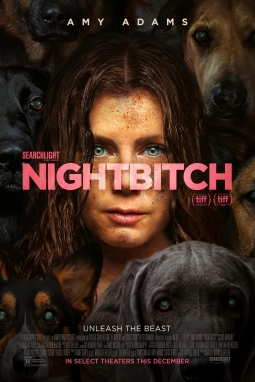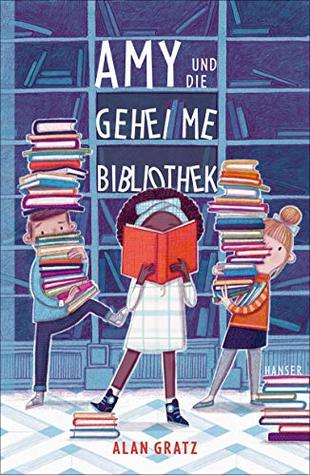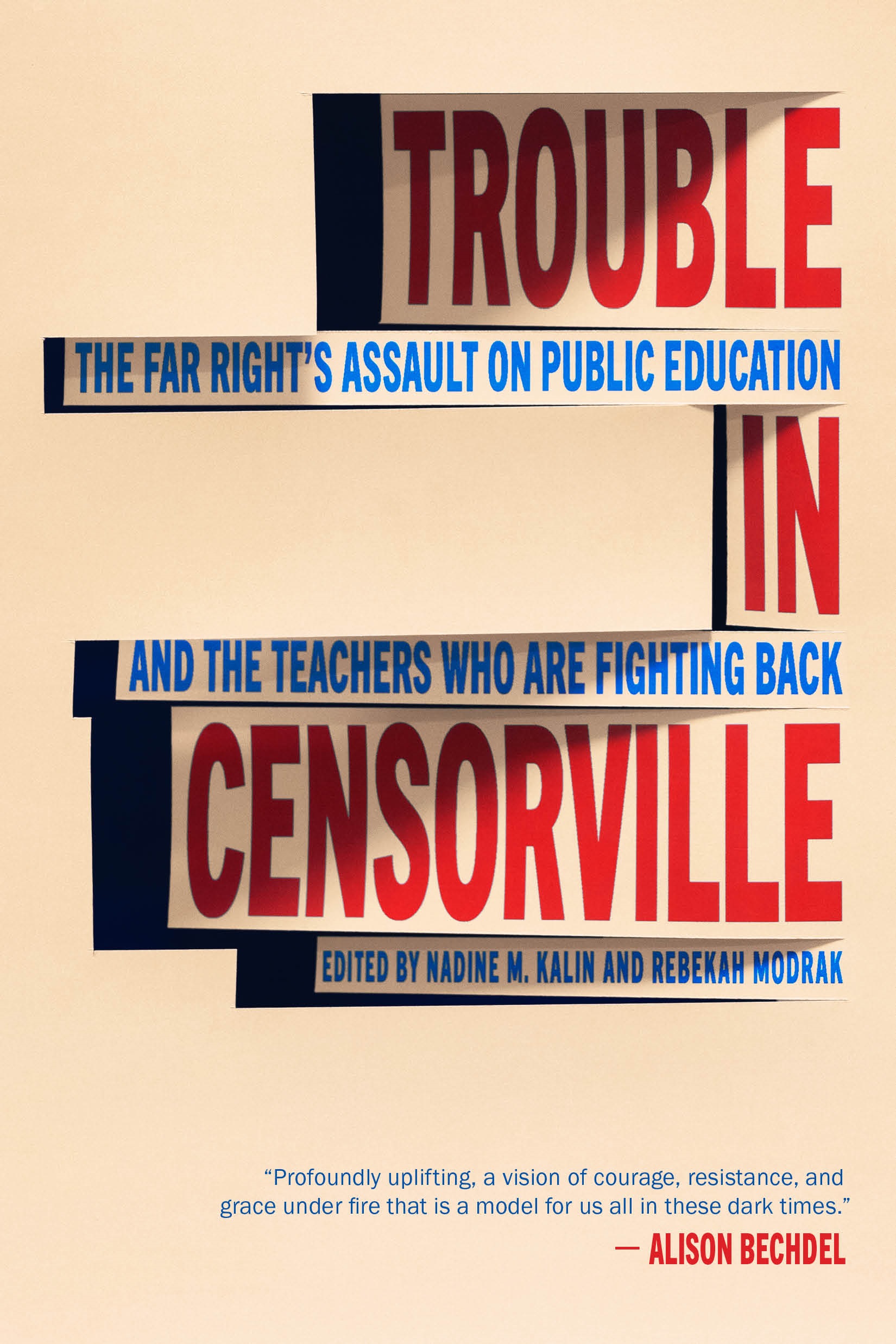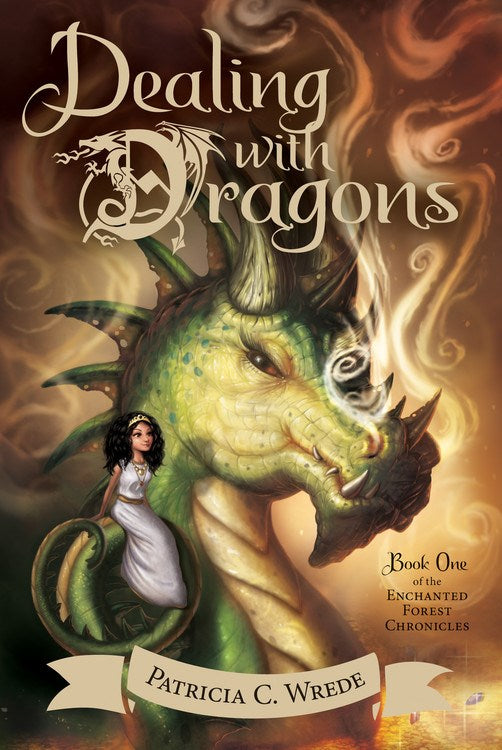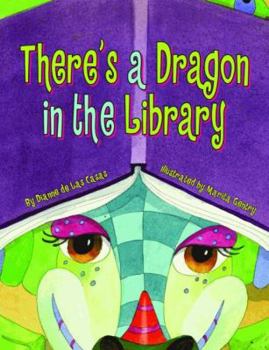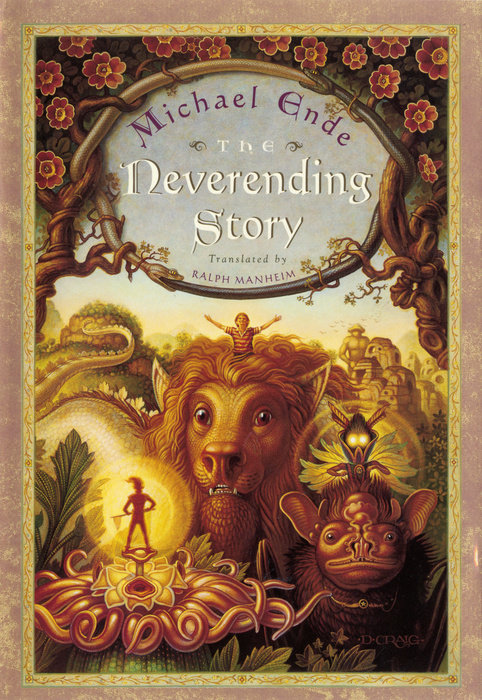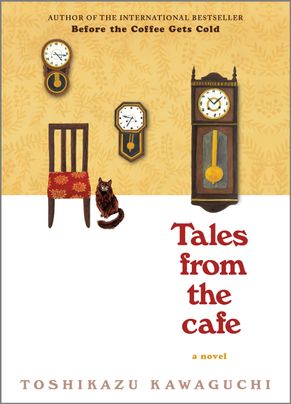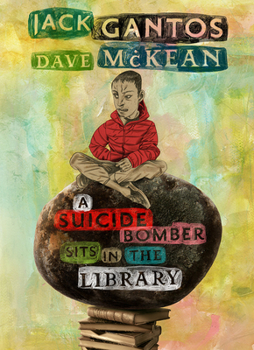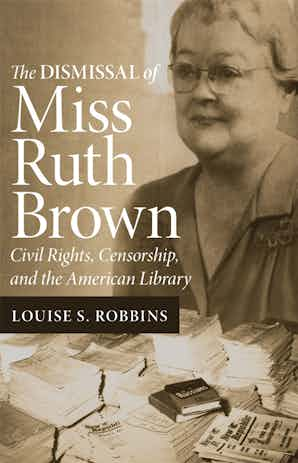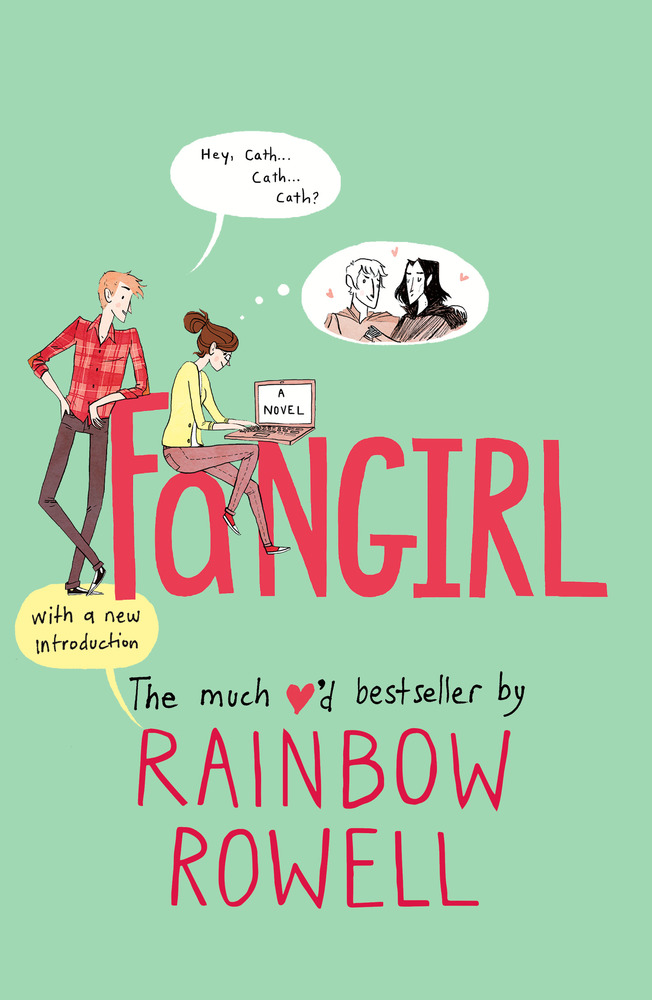Charles makes sense of his world through stories and fantasy. He imagines people as dragons, trolls, and other mythical beings. Although he has trouble reading, he discovers that the library can be a magical place as well. His friend Will explains to him that at the "li-brar-y...they give books for free if you have their secret card". Even though he knows that he can gets things for free at the library, Will nevertheless, also has "tapes of Haitian music [he] stole from the library."
Sunday, December 29, 2024
Nightbitch (the movie)
First and foremost I must say how much I hate the word "bitch". I avoid using it in just about any context, which is not to say I never say it. For instance, I might use it if it were part of the title of a movie I watched.
This film is tagged as Body Horror, Dark Comedy, Comedy, and Horror on IMDB. Yes, all of those things. Most importantly though, is that the library, and a librarian play piviotal roles in this film. Although the unnamed main character (Amy Adams) claims to hate Book Babies at the library and the other Moms she meets there, she discovers that they aren't so bad after all, and furthermore, the the librarian, Norma, (played by Jessica Harper) knows a lot more than just how to shush loud patrons. She has insights into motherhood as well as book knowledge. Our heroine not only recognizes Norma's worth, she commemorates it.
Tuesday, December 10, 2024
Unexpecting - by Jen Bailey
When teenagers Ben and Maxie decide to have sex (almost on a dare) they are dismayed to discover that the act resulted in a pregnancy. The fact Ben is gay adds an additional level of bewilderment to those who know him. Maxie (whose mother works at the public library) is ambivalent about the pregnancy and is under pressure from her parents to give the baby up for adoption. Ben, however, wants to raise the baby with the help of his mother and step-father. His mother provides some level of support for this idea, with the stipulation that Ben attend parenting and childbirth classes. Ben also checks out books on these topics from the public library.
A twenty-first century take on the 1977 classic He's My Baby Now by Jeannette Eyerly. Eyerly's book was adapted into the 1980 ABC After School Special "Schoolboy Father" starring a very young Rob Lowe.
The Sound of a Wild Snail Eating - by Elisabeth Tova Bailey
This book was recommended to me by my son as I was recovering from a recent illness. The author recounts one-year of a decades long illness in which she was unable to even sit up on her own. She finds solace with a snail who lives in a terrarium next to her bed.
She specifically states that at the worst of her illness she was not able to even read to herself, and that the library was a place (among others) that she could not go. As she recovers a bit she can sit up enough to read again and requests "through interlibrary loan the twelve-volume compendium The Mollusca which covers the entire phylum of mollusks".
A quick, yet meditative read.
Monday, December 2, 2024
The Ogress and the Orphans - by Kelly Barnhill
My reading goal for 2024 has been to read 60 books about dragons (because it is the year of the dragon, and I turned 60). So far I have read fify-eight and a half dragon books. I have every reason to expect that I will reach my goal. I did not necessarily seek out dragon books that were also library books, although serendipitously, many did fill the bill - a list is provided at the end of the post.
As part of the project, earlier this year I read The Girl Who Drank the Moon by Kelly Barnhill which told of a locked library. Evil doers were guarding knowledge from the riff-raff. The Ogress and the Orphans has similar themes.
A shape shifting dragon arrives in the village of Stone-in-the-Glen in the form of a hero who vanquishes dragons and becomes the mayor. As a dragon he first burned down the library, the school and other buildings and then as mayor convinced the villagers that he saved them. Without access to books and knowledge the villagers are convinced that the mayor alone can save them. After all "books are dangerous". The village orphanage, however, still has a library and the orphans are well read, and well equipped to truly save the town from the mayor (and itself).
For another library-positive dragon book by Kelly Barnhill read When Women were Dragons. I listened to this one on audio while in the car, so I don't have specific notes about the wonderful librarians in this work, but I will say it was probably my favorite of all the dragon books I've read so far.
As promised, other dragon/library books include:
Raising Dragons by Jerdine Nolan
Dealing with Dragons by Patricia Wrede
Fourth Wing by Rebecca Yarros
There's a Dragon in the Library by Dianne De Las Casas
The Neverending Story by Michael Ende
The Dragon in the Library by Louie Stowell
The Hero and the Crown by Robin McKinley
Daydreamer by Rob Cameron
Thursday, October 3, 2024
Ban This Book - by Alan Gratz
When Amy Anne learns that her favorite book, From the Mixed Up Files of Mrs. Basil E. Frankweiler, along with a host of other works, has been removed from her school library she and her friends start the BBLL (Banned Books Locker Library) so that they can share the books with classmates who want to read them. As the book bans continue, and their beloved school librarian Mrs. Jones is replaced by a "shushing" imposter, they decide to fill out reconsideration requests for ALL the books in the library as a form of civil disobedience. They have no problem coming up with a reason for each book, from witchcraft to sexual content to violence to "it might confuse children", or in the case of a book of riddles, it might make kids feel bad if they can't figure out the answer. Never mind that it might make them feel good if they CAN figure it out.
Amy Anne is surprised to learn that there is a field of study called "library science" and enlists the help of Mrs. Jones to set up the BBLL. Mrs. Jones provides Amy Anne with some old equipment including a date stamp card. Once Amy has this she feels like a real librarian and only needed "a pair of glasses on a chain" to be ready for her "official librarian membership card."
One of the banned books is Judy Blume's classic work Are You There God? It's Me Margaret. Mrs. Jones explains that back in the day when due date stamps were used that libraries also used cards and pockets to keep track of who had checked out the books. She shows Amy Anne some old books that still have the cards and pockets. It is here that she learns that the parent behind most of the challenges (Mrs. Spencer) checked out Blume's work multiple times when she was a student at Shelbourne Elementary. Amy Anne "outs" Mrs. Spencer, which, let's face it, she kind of deserved. However, Mrs. Jones does take the opportunity to explain to Amy Anne about patron privacy.
On Censorship: A Public Librarian Examines Cancel Culture - by James LaRue
I've been invited several times as a guest speaker on "The Dissidents" podcast. During the month of September, as a lead up to Banned Books Week (September 22-28) one of the hosts (Elizabeth) and I read LaRue's book and recorded four half-hour(ish) conversations about it. Last night, as a finale, we invited the author to speak with us about his work on a livecast. It was a fun (and hopeful) conversation.
Listen to all of our conversations:
Wednesday, September 25, 2024
That Librarian: The Fight Against Book Banning in America - by Amanda Jones
My realization was a bitter pill to swallow because of how much I loved the books as a child. But the books are not what I thought they were as a child. Strip away my nostagia, and I knew the books could be harmful. Is it censorship if I take them off the shelf though?
Monday, September 23, 2024
Trouble in Censorville: The Far-Right's Assault on Public Education and the Teachers who are Fighting Back - edited by Nadine M. Kalin and Rebekah Modrak
It should come as no surprise to anyone following the news, be it local or national, that book challenges are on the rise. According to PEN America there have been over 10,000 book bans in public schools in the last year.
This book is a collection of essays by teachers and librarians across the country who have been targeted and harassed for having a diverse collection of books in their classrooms and libraries.
I would recommend to those who are interested in this topic not to read the book in its entirety, cover to cover, over a short period of time, as I did. The tone weighed on me, even though I knew what to expect.
There is also a certain same-ness to these stories (even as each is unique), which again may weigh on the reader. It is important to note, however, that the same-ness is due to the fact that those who are attacking the educators are all using the same playbook, and attacking the same books. Allegations of pornography in the children's section and grooming young children are de riguer from those who purport to protect children.
At least two of the essays in this work were written by the same librarians I read about in The Secret Lives of Booksellers and Librarians. Notably included in both are Martha Hickson (school librarian in New Jersey) and Carolyn Foote (retired school librarian in Austin, Texas). The tone of the two works couldn't be more different, however. Overall, Secret Lives is light, whereas this one is heavy. Secret Lives is a celebration of books and reading. Censorville is a call to arms and indeed includes a list of things we can do to "resist attacks on public education".
More information about this work, the educators who are profiled, and and additional links to more resources can be found at Censorville.com.
EveryLibrary sponsored a panel discussion with Kalin and Modrak along with some of the authors from this work which can be found online here.
Banned Books Week 2024 runs from September 22-September 28.
Saturday, September 14, 2024
The Secret Lives of Booksellers and Librarians - by James Patterson and Matt Eversmann
Well, I could hardly resist this one!
This was the first James Patterson book I ever read. I do not know if I will read others, but I did thoroughly enjoy this one. I read this out loud to my Geographer husband and he couldn't help but make a map of all the places mentioned. The ones we've visited are in re(a)d - you see what I did there?
On a recent trip to Maryland to visit family we took the opportunity to stop at Thunder Road Books (New Jersey) and RJ Julia Booksellers (Connecticut).
The best thing I learned from this was that the Barnes & Nobel store closest to our house allows dogs. What could we do but put our hound in the car and head over!
 |
| Here's our book-loving dog smiling in front of the David Sedaris display. She was named for his alter-ego in the Santaland Diaries |
In a world of book banning gloom and doom the essays in this work bring a sense of joy. Each short essay profiles a different person who works in the world of books and loves recommending books to others.
Dealing with Dragons - by Patricia Wrede
Princess Cimorene has never been interested in the traditional proper behaviors expected of those in her station. She is especially not interested in the arranged marriage her parents have planned for her. Although they have selected a handsome prince, he is a bit dull and Cimorene doesn't want to marry in any case. She goes off to live with the dragons and offers to serve the dragon Kazul. Although she has many offers from knights and princes to "rescue" her she thwarts them all.
Kazul's private library is a mess, and Cimorene takes care to organize it. She also does research in the library to find a fireproofing spell for herself. Ultimately she is given the title King's Cook and Librarian and lives happily ever after.
One of the sixty books about dragons I'm reading during this year of the dragon in which I turned sixty.
Tuesday, September 10, 2024
The Dragon in the Library - by Louie Stowell
Every library has a dragon sleeping underneath it. The dragon needs stories and quiet to keep it asleep lest it awaken and wreak havoc upon the world. It is also true that all librarians are wizards and are in charge of keeping the dragon in its dream state.
Young Kit discovers that she is a wizard when she meets Faith Braithwaite, Head Librarian of the Chatsworth Library "a boring-looking concrete building with automatic doors that didn't work right..."
I had some concerns with some of the things in this book:
In one passage Faith tells Kit and her friends that there are certain books that they keep away from the general public "because they're dangerous...[they] have power even if you're not a wizard". She goes on to explain that they can change you into a marshmallow if you're not careful, but frankly it just sounds like good old censorship to me. Dangerous books indeed!
In another Faith asks Kit and her friends to help shelve some books:
"You just need to match the number on the spine to the number on one of the shelves. There's a list of where you'll find each number, but I'm sure you'll get the hang of it quickly". Right, because everyone knows that there is no reason to train people who work in libraries how to properly shelve books. Sheesh.
Faith also asks Kit to do story time, even though Kit doesn't like to read out loud. Kit in fact does a crappy job of it. Well, she just needs to practice. Story time takes more preparation than simply picking up a book and reading it to a group of kids. It's takes planning. At the very least we'd expect that the person conducting the story time had read the book at least one time before!
Librarians may not be wizards, but we are trained professionals.
One of the sixty books about dragons I'm reading for the year of the dragon in which I turned sixty.
Tuesday, September 3, 2024
The Librarianist - by Patrick deWitt
Bob Comet is a retired librarian who lives in a mint house. I also am a retired librarian who lives in a mint house (or at least I will once the renovations are done). Beyond this the character in this novel and I don't have much in common.
deWitt's book reminds me a bit of Anne Tyler's books. There is a lot of description of what happens in the life of the characters, but we don't get a lot of insight into how they processed their experiences. There isn't even much about Bob's library work, although we do learn why he became interested in it. The only passage I marked was this unfortunate description of Bob's boss
Never has there been a librarian less inclined, less suitable to represent the limitless glory of the language arts than Miss Ogilvie. She cared not at all for literacy or the perpetuation of any one school or author, and Bob never one saw her take up a book for pleasure. Her function, as she saw it, was to maintain the sacred nonnoise of the library environment. "What these people do with the silence is beyond my purview," Miss Ogilivie told Bob. "But silence they shall have." The human voice, when presented above the level of a whisper, invigorated her with what could be named a plain hate...
I picked this book up at Thunder Road Books in New Jersey during a recent road trip to Maryland. This bookstore is profiled in The Secret Life of Booksellers and Librarians (which I will be blogging about soon, once my husband and I have finished reading it together).
Friday, August 2, 2024
The Chaperone - by M Hendrix
In the tradition of Margaret Atwood's The Handmaid's Tale Hendrix creates a New America, one in which women are second class citizens and all teenage girls are required to have a chaperone when they go out in public. Chaperone's are exclusively other women who have decided to take one of the few jobs available to them.
Stella's Chaperone (Sister Laura) is not averse to bending the rules for her charge. Sister Laura sometimes disappears when she and Stella are at the library so that Stella can steal a few moments with her crush, Mateo.
It is intriguing that there even is a public library in New America. But of course there are also a lot of forbidden books. Sister Laura passes some of this literature along to Stella, helpfully suggesting that she hide the taboo works between the covers of some of the other books in her room.
It appears a revolution is afoot!
Wednesday, July 31, 2024
The Hero and the Crown - by Robin McKinley
Fire-haired Aerin, daughter of a king and a witch creates kenet, a salve that protects the user from dragon fire. Aerin becomes a dragon killer. The little-used royal library becomes a place where she not only discovers that she can read, but can learn as well.
Monday, July 15, 2024
Fourth Wing - by Rebcca Yarros
If you tell people you are making a project of reading books about dragons you WILL be asked if you've read Fourth Wing. There are evidently a lot of people who either love or hate this work. I found myself a bit indifferent about it. But, let's face it, at sixty years of age I'm not exactly its target audience. This is a book for "new adults" and features a group of twenty-somethings at a magical war college (Basgiath) learning how to fly dragons. The classes are deadly. Many die before they even get to their first class. Violet Sorrengail never even wanted to join the elite team of dragon riders. She wanted to be a scribe and train to be a librarian in Basgiath's archives, like her father. Her mother, however, insisted that she risk her life in the Rider's Quadrant.
Of course, her time studying to be a scribe only makes her more bad-ass, even though she is among the weakest and smallest members of the Rider's Quadrant. She knows not only the value of information, but also where to find it, how to use it to her own advantage, and to understand who gains from telling the stories.
Violet is also discovers that forbidden information is perhaps the most powerful information of all.
Sunday, July 14, 2024
Do Not Bring Your Dragon to the Library - by Julie Gassman
Thursday, July 11, 2024
There's a Dragon in the Library - by Dianne de Las Casas
No one believes Max when he tells them there is a dragon eating all the books in the library - not his mother, not his father, not the head librarian, not his teacher. Only Officer Riley suggests that they go and look, but by then it is too late.
Of particular note is that the head librarian is a man. Because of course the head librarian is a man. Leadership positions in libraries always go to men. We can't really expect otherwise though. It's just so hard to find women in the field.😏
One of the sixty books about dragons I'm reading this year of the dragon, in which I turn 60.
Friday, June 28, 2024
Gay the Pray Away - by Natalie Naudus
Valerie and her brother are homeschooled with a curriculum sanctioned by the Institute of God's Basic Principles, a conservative Christian organization headed by Ben Goddard - a not-so-subtle camouflage of the Institute of Basic Life Principles once headed by Bill Gothard. Valerie has always been taught to obey her parents and the church's teachings. The seventeen-year-old is expected to marry and begin having children when she completes her studies in God's Training Academy. She interacts mostly with others from her church, and rarely talks to people outside of her insular world. Her haven is the public library - a place she is able to visit while supervised by her mother (who once organized a protest against it for "sexualizing children"). Valerie has learned to select books with innocuous covers so that her parents don't question her reading choices. It is through library books that she first learns about bisexual and other queer folks and begins to question her own identity. When she meets Riley, a "troubled youth" who got kicked out of her private Christian school for kissing a girl, she realizes that there is much that she still needs to learn. With the help of the public library's internet she begins to explore new territory, the freedom she experiences leads her to make some difficult decisions.
This book reminded me of Pearl Abraham's The Romance Reader (which I read when it was first published almost 30 years ago). Abraham's work tells of a girl growing up in a strict Hasidic community who sneaks to the library to read romance novels.
Monday, June 24, 2024
The Neverending Story - by Michael Ende
I revisted this classic work after 40 years as part of my project to read sixty books about dragons during this year of the dragon in which I turned sixty years old. I remembered very little of the story (other than the fact that it had a dragon).
large circular room...[where] "walls of books were divided into sections, bearing signs such as "Funny Stories," "Serious Stories," "Exciting Stories," and so on.
Like another book about which I recently blogged this book is about someone who is reading a book about himself as it is being written. See My Librarian is a Beautiful Lesbian Ice Cream Cone and She Tastes Amazing
Friday, June 21, 2024
What You Are Looking For is in the Library - by Michiko Aoyama
Five people, each at a crossroads in life, find their way to the Community Library, a place none of them had given much thought to before. Tomoka, Ryo, Natsumi, Hiroya, and Masao discover that reference librarian Sayuri Komachi will not only find the books that will answer your question, she also finds books to answer the question you didn't know you had. The mysterious librarian also gives a bonus gift in the form of a felted trinket to each of the seekers. The description of Ms. Komachi provides an interesting take on the old librarian stereotype, and one that demonstrates a larger than life perspective
The librarian is huge...I mean, like, really huge. But huge as in big, not fat...she is wearing a beige apron over an off-white, loose-knit cardigan...Her hair is twisted into a small tight bun right on top of her head, and she has a cool kanzashi hairpin spiked through her bun with three white flower tassels hanging from it.
Natsumi is a parent to a young child (Futaba). She works at a publishing house and before her daughter was born she was an editor for a magazine called Mila. However, when she returned to work following a short maternity leave she was placed in the information resources department where her job was
to retrieve data for employees upon request, and seek various permissions when required...also [writing] company profiles for the website and other PR material for external use
While she does not identify herself as a librarian, those of us who do the work know what she is.
I was particularly intrigued by this passage regarding Natsumi's work
In my Mila days, I used to have no reservations about reading at my desk, since anything could be a potential source of ideas. But in Information Resources I hesitated to do any general reading. Just in case my colleagues might think I was slacking off.
It is not unusual for people to make comments about how great a librarian's job must be with "nothing to do all day but read". You can be sure this comment will raise some serious ire, followed by an explanation about how librarians have ABSOLUTELY NO TIME TO READ as we are much too busy answering reference questions, ordering books, unjamming printers, supervising clerks, resolving database and computer problems, and a myriad of other things. Here is my truth: sometimes I was busy, and sometimes I wasn't. As a public services academic librarian I was usually pretty busy teaching classes, and helping people with research during about eight months of the year. During the summer months though I read - a lot! Much of what I was reading was professional literature, or things relevant to my research interests, but sometimes I was just reading for fun. There seems to be way too much concern that a person might have "down time" at work. In library work, no matter what your role, I would argue that reading is the best use of such time because as Natsumi says "anything could be a potential source of ideas." Generally being a well-read person helped me to answer more than a few reference questions.
Ms. Komachi is often found busy working on her felting. When Masao finds her doing this he "sense[s] anger in her expression and she seems unapproachable." Masao had misread the expression. In fact Ms. Komachi was quite ready to help. The question of approachability has come up a lot during my tenure in public service. As I said, down time is not unusual and it is unreasonable to think that we would sit doing nothing. I was often doing research when I wasn't directly teaching, or helping someone, but that didn't mean I wasn't available.
Hiroya is a young man who is not sure where he fits in. He is described as a NEET (not in employment, education, or training). He enjoys manga and hopes to be an artist. Ms. Komachi mentions that he seems to know a lot about manga. He responds that his uncle used to own a manga café "a coffee shop with heaps of manga...They don't have private rooms, just tables where you can sit and order a drink, then read from the manga library in the shop."
Ms. Komachi is not the only library employee of course. All the characters also get help from Nozomi, a library assistant who aspires to be a librarian. She explains to Hiroya that "if you take a library assistant training course...then work for three years, you can qualify for the librarian training course...you can also go to university to study". Hiroya is impressed that "becoming a librarian is harder than [he] thought." This is another thing that is not well understood among the general population. In fact most people who work in libraries are not librarians. Those who are at the desk checking out books, or who reshelve returned books, or process them to be made available, or work to keep the library clean, or run the in-house coffee shops, are not librarians. In most cases, in order to get work as a "librarian" one needs to have completed a Master's degree in Information and Library Science (MILS). Although sometimes those without the degree have the title, the MLIS is the usual and accepted credential needed for professional librarian work.
Ultimately Ms. Komachi is a binding force between the characters, each other, and their community.
A story about making meaning and finding your place. I read this one aloud to my husband. We both enjoyed it.
Wednesday, June 12, 2024
My Librarian is a Beautiful Lesbian Ice Cream Cone and She Tastes Amazing - by Chuck Tingle
My sister sent me an Amazon link to this super-short story. I really had no choice but to purchase the ebook and download it to my Kindle app. In a world where sentient ice cream cones are a thing that don't give anyone pause, we can also easily accept the wonderful metafiction that allows us to believe that the ice cream librarian is reading a book about herself as it is being written.
Certainly not a book for everyone's taste, but definitely a fun read. It also came with a bonus story "Nice Guy Dinosaur Doesn't Pound Me in the Butt Because I'm not Interested and He's Not Actually Nice He's Just Annoying and Creepy and Doesn't Respect My Boundaries When I Tell Him We're Not on a Date".
I have no additional comments about the bonus story. The title pretty much tells all, plus which there are no librarians.
Thursday, May 30, 2024
Raising Dragons - by Jerdine Nolan
One of the sixty books about dragons I'm reading in honor of my sixieth birthday in the Year of the Dragon I remembered reading this one to my now-adult child when he was little. What I didn't remember was that the unnamed narrator learned some of what she knew about dragons by reading a library book!
I found the whole story on YouTube.
The Girl Who Drank the Moon - by Kelly Barnhill
My reading goal for 2024 is to read sixty books about dragons in honor of my sixtieth birthday during this Year of the Dragon. Kelly Barnhill’s Newbery Award winning book features a magical girl (Luna) who keeps a tiny dragon for a pet.
Luna was rescued as an infant from certain death by a witch. She had been left as a sacrifice by her village - all part of an evil plot by the town Elders and the Sisters of the Star meant to keep the rest of the villagers in line.
The Sisters are the only ones with access to the libraries, the only ones that is except for their parade of apprentices who were always sent away “once they became aware of how much learning there was to be had in the libraries of the Tower, and they became hungry for it”. The Sisters knew, of course, that "the last thing they needed was to allow the populace to be getting ideas. Ideas, after all, are dangerous." When the Sisters and the Elders are finally conquered their apprentice (Wyn) is the person who opens the library to all because "knowledge is powerful, but it is a terrible power when it is hoarded and hidden".
Thursday, March 21, 2024
Tales from the Cafe - by Toshikazu Kawaguchi
During the early days of the pandemic James and I read Kawaguchi's book Before the Coffee Gets Cold which told of a coffee shop (Funiculi Funicula) that allowed customers to time travel, as long as they returned to the present "before the coffee gets cold". There were other quirky rules to follow as well, including where a would-be time traveler could sit - only in a seat otherwise occupied by a ghost. The ghost (aka the woman in the white dress) sits all day and reads, except for one daily trip to the toilet (why a ghost needs to use the bathroom is a question asked, but not answered). It is during this brief window each day that someone else might get a chance to time travel. I did not blog about this thoroughly enjoyable book when we read it because, alas, it had no libraries.
Tales from the Cafe has more stories from café Funiculi Funicula with this important change to the set up
Until a couple of years ago, the woman in the dress read a novel entitled Lovers over and over again. One day, Miki remarked, "Doesn't she get bored reading the same novel?" and presented her own picture book to the woman in the dress.
This led coffee shop employee Kazu to the idea that she could provide new reading material to the woman in the dress with regular visits to the library. The woman in the dress accepted the fresh books, but without ever any acknowledgement of gratitude. Nevertheless Kazu continues to go the library once a week.
Both this book and Before the Coffee Gets Cold are episodic, with a unifying storyline.
A book about finding happiness.
Wednesday, March 13, 2024
A Suicide Bomber Sits in the Library - by Jack Gantos
I first learned of this "unpublished" work when I read the Booklash Report from PEN America which describes several cases of pre-emptive censorship (in which authors either change, or pull, their works before publication in response to public accusations of harm.
When criticism of a book veers into accusations of harm, authors may feel compelled to respond to their audiences in real time—typically through social media. In some cases, this means fact-checking details that have been lost or misrepresented in the social media uproar. In 2018, for example, Dave McKean, the illustrator of the controversial children’s graphic novel A Suicide Bomber Sits in a Library, tweeted to clarify that the book’s Muslim protagonist was not in fact illiterate—a sticking point in a since-deleted, viral tweet posted by comics publisher Zainab Akhtar.
It turns out that the book never got published anyway, over charges that it was "Islamophobic". But then, I discovered that the "unpublished" work had actually been published as part of an anthology (Here I Stand edited by Amnesty International) in 2016. An interlibrary loan request brought this work to me so I could read the story for myself.
The short story does not include McKean's illustrations (which would have appeared in the graphic novel). I think it is clear, however that the protagonist is illiterate. We see this in the very first paragraph.
He has been told to fear nothing and that he will be perfectly safe in the library. Not even the secret police will think to look for him there, since he cannot read.
There is no indication in the rest of the story that the boy knew how to read.
While sitting in the library the boy watches as others select and enjoy books, and begins to wonder what he is missing.
The suicide bomber...wants to ask what happens next in the story but he has been instructed to remain silent because books will master him just as they have mastered his enemies. He has been taught that books create a false life in a godless world that should not exist. Books cannot be trusted when only God has the key to paradise.
Well, this certainly reminds me of current events - censoring a book about censorship.
Those on the left who would censor books do not like to be compared to those on the right who do the same. It is difficult to see oneself reflected in an unflattering light. For another example of left censorship see this article from The New York Times.
I end my post with this quote from the book.
He walks away thinking of the faces of the readers in the library. They were not ruined. They were happy. They were safe. Whatever power lived within those books did not hurt them (emphasis mine).
More information about the controversy can be found in this article from the Guardian.
Friday, March 1, 2024
The Dissidents Podcast (in which Pam discusses the ethics of librarianship)
The Dissidents Season 4 Episode 6 Keeping Up Appearances: Ethics and Neutrality in the Everyday Life of a Librarian
See also The Librarians Are Not Okay
Wednesday, February 14, 2024
The Dismissal of Miss Ruth Brown - by Louise S. Robbins
Eight years ago I wrote about the film Storm Center. I recently learned that this film, produced at the height of McCarthyism, was loosely based on the case of Ruth Brown, who was fired from her job as librarian at the Bartlesville (Oklahoma) Public Library in 1950. Robbins' book even contains a rather thorough summary of the movie. Bette Davis (who played ousted librarian Alicia Hull) was questioned about taking the role by at least one parent, Anne Smart.
Smart sent Davis a "report of the book controversy" she was causing in Marin County [California]...Her report depicted in "vivid detail...the type of material being given to our children in some schools. [The report]...made its way around the country for for several years [and contained] the names of authors "all extremely well listed as to their communist and/or communist front affiliations by various government investigating committees."
The more things change...
Brown was an outspoken civil rights activist in her town. Her racial justice work during the height of McCarthyism made her an easy target. Charges that she was circulating "subversive" materials was a façade for the real reason of her dismissal.
The back cover blurb of this work (published in 2000) reads
The fundamental issues of the Brown case make it especially pertinent today when differences - in race, gender, class, and national origin - are again feared and as challenges to materials in library collections again escalate. Ruth Brown's story helps us understand the matrix of personal, community, state, and national forces that can lead to censorship, intolerance, and the suppression of individual rights
This description is even more eerily prescient today. As are discussions in the book of neutrality, academic freedom, freedom of acquisition, freedom of access (especially to controversial materials) and the blatant sexism.
Ruth Brown was one of the women, mostly white and middle-class, who made up 88.8 percent of the allied profession of librarianship in 1950. For a salary less than a man would receive, she organized and maintained a comfortable homelike space where people, especially young people, went for wholesome enlightenment (emphasis mine). The professional role of the librarian gave communities low-cost female employees (emphasis mine) to provide healthy recreational and informational reading while it extended the margins of the domestic sphere without exploding them. The librarian's role did not transgress boundaries as long as the homelike space and the materials and activities organized in it remained safe, comforting, and submissive to the prevailing ideology...
The more things change...
The Library Bill of Rights was originally adopted by the American Library Association (ALA) in 1939 to ensure access to information (even what some might consider harmful or dangerous) to all. "The ALA articulated the importance of allowing citizens to decide for themselves what they should read, an idea Brown expressed in her interview with the city commission". This is a stark contrast to the description of the "stereotypical" librarian
in Alice I. Byran's 1952 research report, The Public Librarian...[who] was "rather submissive in social situations" and lacked self confidence. "Indiscreet" was not part of the lexicon by which librarians, especially female librarians, were described. In fact female librarians have been characterized as discreet to a fault in book selection practices, "ruthless in their own censorship." Marjorie Fiske's 1959 classic , Book Selection and Censorship, depicted its mostly female subjects as anxious and fearful, avoiding challenges to library materials through self-censorship.
The more things change...
And on a final note, we see the same ideological concerns in libraries today as libraries in Montana and Georgia cut ties with the ALA over president Emily Drabinski's identity as a Marxist lesbian.
The more things change...
Wednesday, February 7, 2024
The Music Man (the movie)
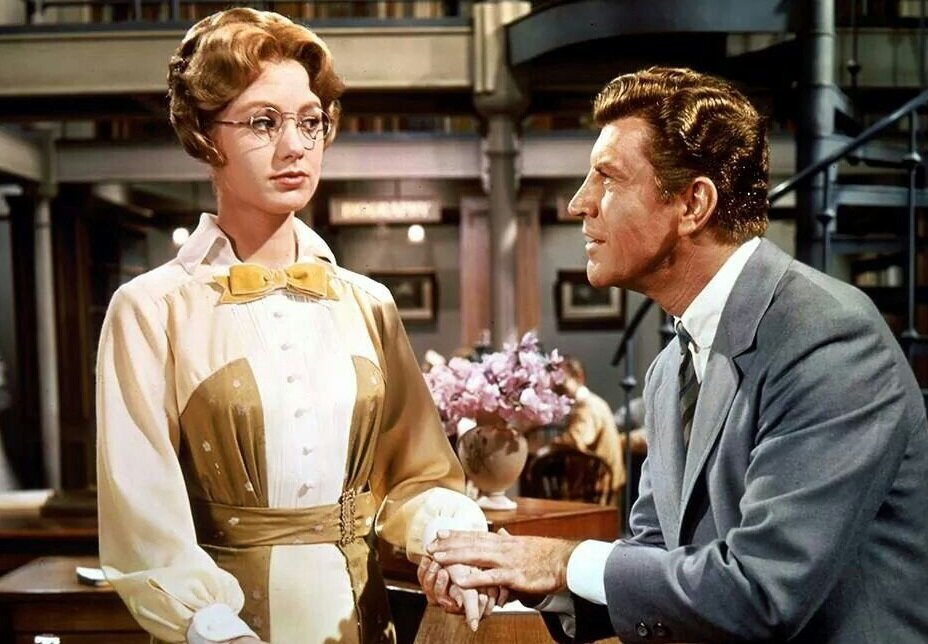 |
| Prof. Harold Hill sexually harasses Librarian Marian Paroo in The Music Man |
I was the guest speaker in my husband's class earlier this week. The lesson for the day was how to find information to do research on Coffee. The day before the class he said he liked to start his classes with some music and asked me to suggest something. "How about Marian Librarian" said I.
We used a video we found on YouTube. I realized while we were showing it to the class that it had been a long while since I'd seen it (certainly not since before the Me Too movement) and so I felt compelled, after watching it with the class, to mention that this display of sexual harassment was completely inappropriate.
Nevertheless James and I decided to watch the entire two-and-a-half-hour movie together that evening (it actually took two nights because the movie is so very long). I can't deny that it is a fun movie with some catchy tunes, even though the cringe-worthy sexual harassment is all too familiar to those of us who work in public services.
There is almost too much to say about this, so I will stick with the highlights.
First of all Shirley Jones as Marian is, without a doubt, the most iconic of all fictional librarians - a "sadder but wiser"... "stuck up"..."maiden lady librarian who gives piano". Lucky for swindler "Professor" Harold Hill (Robert Preston) that type of woman is exactly his "speciality".
What I remembered about Marian was that she curated a fine collection of materials for use by the citizens of River City, Iowa and was a defender against the would-be censors. Important to note, however, is that Eulalie Shinn, the Mayor's wife (Hermione Gingold), complained about what her daughter was reading, but was unconcerned that others might read the same book. Parents always have the right to dictate what their own children can read. Something Mrs. Shinn understood.
What I didn't remember was Marian's own heinous crime of ripping a page out of one of the library's books! This is simply not acceptable - even if the librarian does believe that she is going to save the City from itself by doing so.
There were some interesting things to note about the library hours. For instance, when Marian returns from work in the evening her mother asks "Library open later than usual?" "It always is" is Marian's un-ironic reply. The library was also open on the Fourth of July.
There is some serious "shush-ing" going on at the River City Public Library. Even Marian herself gets shushed by some of her patrons.
And Professor Harold Hill? As my late Grandmother used to say about my Uncle Dave "he can fall in a pile of shit and come out smelling like a rose"
Tuesday, January 23, 2024
The Princess Trap - by Talia Hibbert
Thursday, January 18, 2024
Unmasking AI - by Joy Buolamwini
Algorithms are created by humans. Humans are flawed and have biases, these flaws and biases are programmed into algorithms, perhaps not explicitly, but with consequences nonetheless.
As a graduate student at the Massachusetts Institute of Technology (MIT) Buolamwini, using an open-source face tracking library to work on a project, discovers that facial recognition programs are especially bad at recognizing black and brown faces. Her research eventually brought her to The White House, to testify before Congress, to National Television, and Netflix. And ultimately to become founder of the Algorithmic Justice League. She mentions the use of code libraries on several occasions.
She describes volunteering as an undergraduate at the Carter Center on a project to eradicate tropical diseases. Visiting the Jimmy Carter Presidential Library in Athens, Georgia she
walked through the gardens near...the library [and] saw a piece of art that offered hope - a bronze statue of a child leading a blind elder using a stick they both held. Sightless Among Miracles had been donated to the center to underscore the effort to support the global control of onchocerciasis (river blindness).
Perhaps the most disheartening (for me) passage was this
After two years on the MIT campus I was finally making my way to the Hayden Library. With online access to almost all the resources I needed, I had yet to step foot into a campus library. After printing out results on archival paper that felt soft yet sturdy to the touch and hunting down last-minute typos, I felt ready to submit my master's thesis.
While I recognize that online resources have allowed us to put libraries into users' pockets, which is decidedly more convenient for all, it doesn't mean the physical library isn't important as a place. And since I'm required to be in my office most of the time, even though almost everyone is using the library remotely, I do wish more people would take advantage of the space.
Wednesday, January 10, 2024
Fangirl - by Rainbow Rowell
Cath and her twin sister Wren are starting college at the University of Nebraska - Lincoln, but in different dorms. Cath is less than thrilled about this arrangement and is more than a bit intimidated by her roommate Reagan. At least she still has her fanfiction to disappear into. Cath and Wren used to write Simon Snow fanfiction together, but Wren lost interest and Cath now writes on her own.
After getting special permission to take a 300-level fiction writing class Cath meets Nick and the two become writing partners. Nick works at Love Library "(That was the actual name; thank you for your donation, Mayor Don Lathrop Love)" shelving books, although he clearly doesn't take the job seriously enough. He left a cart full of books at the end of his shift because he was doing his homework instead of shelving. When Cath points this out he assures her that "the morning girl can do it. It'll remind her that she's alive". This turns out to be a bit of foreshadowing as we discover that Nick is all to happy to take credit for work that women do.
Cath mostly holds her own in the upper-level writing class, but is taken aback by an accusation of plagiarism when she uses some of her fan fiction as a basis for one of the writing assignments. Her professor is understanding, but will not change the failing grade, or allow Cath to rewrite the assignment. I disagree that what Cath turned in was plagiarized. If she had turned in the same story and used different character names her professor would probably never have realized. Also, I turned in a similar assignment myself as a graduate student (re-wrote a scene from a novel from a different character's point of view). My professor loved it. I got an A.
Cath spends a lot of time in the library, and her full nerd-dom is clear when we discover that she has a bit of a fantasy about "being trapped in a library overnight." She even writes a Simon Snow scene that takes place between the stacks.
Cath finds love (or something like it) with Levi. One of their early bonding experiences involves Cath reading The Outsiders aloud to Levi who has trouble with reading to himself. And really who doesn't love The Outsiders? I've said it before and I'll say it again: reading aloud with another person is never a bad idea. You will always have something to talk about.

